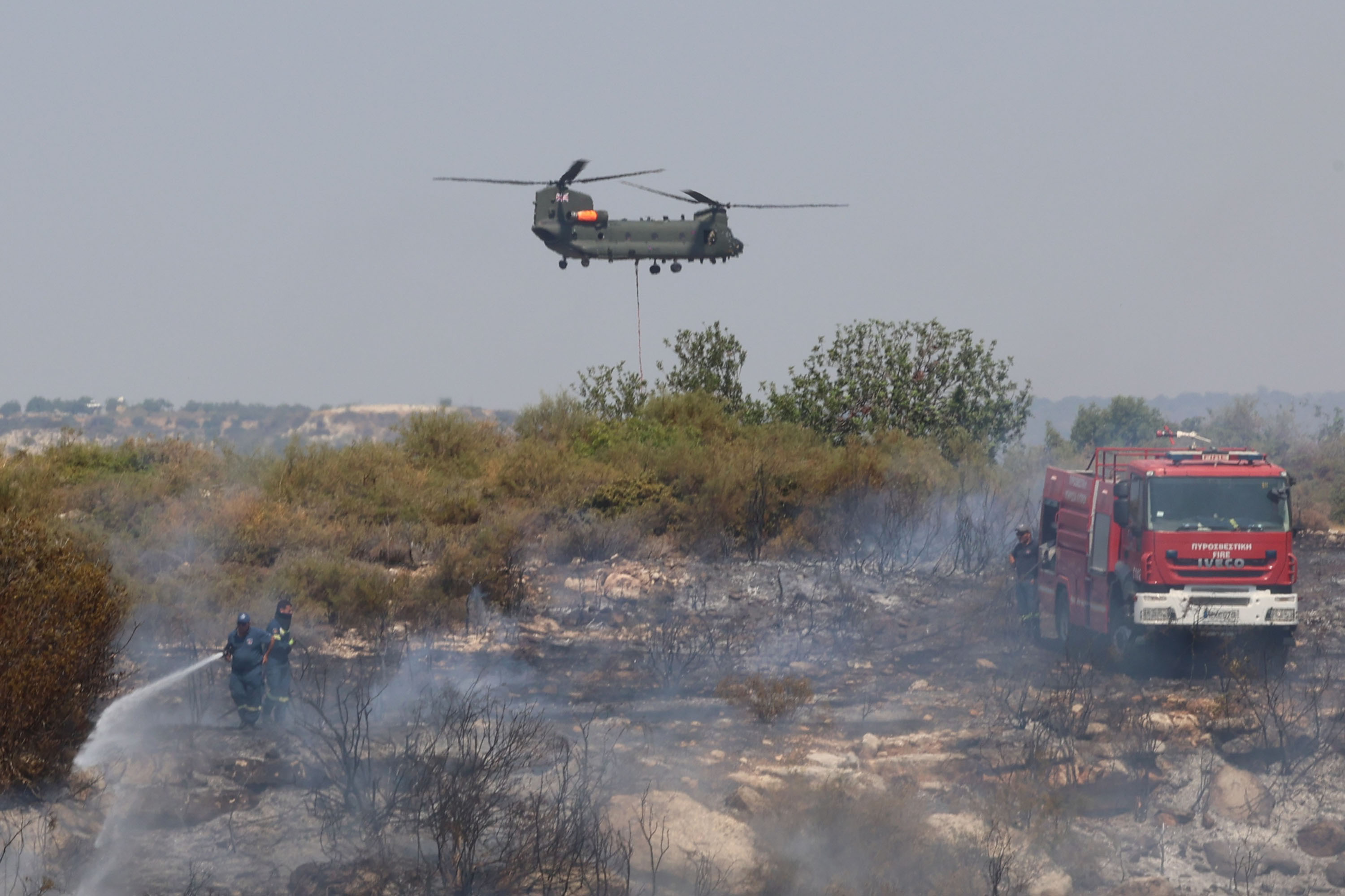The need for better cooperation and coordination between the fire service and forestry department, as well as a thorough assessment of firefighting means, were outlined in a report drawn up by an expert in March, it emerged on Wednesday.
The report, commissioned by the state to better understand what needed to be done to effectively tackle wildfires, was prepared by forest fire expert Dr Gavriel Xanthopoulos.
Speaking to Reporter, Xanthopoulos, a former director of research at the Institute of Mediterranean Forest Ecosystems Elgo-Dimitra, said it was important for a country to have adequate firefighting means, however how it used those means was more important.
Xanthopoulos presented his findings at a meeting in the presence of the agriculture minister and officials from the interior ministry and the fire service.
“People must understand that we are living in different times. You can invest as much as you want […] but if you don’t have good organisation and participation of the public […] then the prevention mechanisms are not enough,” he said.
Xanthopoulos said the forestry department was well-organised, while the fire service “does a satisfactory job, but is obviously not adequate, which is why it turns to the forestry department every time.”
“So, better connection and the redistribution of responsibilities is necessary,” he added.
Commenting on what was done and what wasn’t in putting out last week’s wildfire in Limassol, Xanthopoulos said “a large part of the area which is the responsibility of the fire services, the countryside, creates a very difficult situation.”
“I believe that we will have better results when there is a long-term effort by everyone. It should not be a political game or an effort for expenditure alone, because it is not how and where you spend or how many means you have, but how you will operate them,” he said.
He gave the example of Greece, which today spends ten times more than it did in the 90s and still the average burned area remains the same.
“Not everything can be blamed on climate change,” Xanthopoulos pointed out.
Referring to RescEU, Xanthopoulos said he did not think it was a good idea to set up a base in Cyprus, instead it would be more useful to allocate two aircraft for each Mediterranean state – as has been done – and then they would all together make up an efficient fleet to combat fires in any of the countries.
Regarding Limassol’s fire, Xanthopoulos agreed that “the conditions were very difficult”.
“What they managed to do I cannot say, I cannot judge, I was not there. Certainly there are cases of fires that exceed the level of handling by any mechanism,” he added.
Xanthopoulos explained that some fires can burn in three hours what another would take five days to do so “because no human can get close and there is no way you can stop it.
“When you realise this […] you have to stand back, evacuate and plan what you will do once the conditions change,” he added.
In these conditions, “the mechanism in Cyprus did fairly well. For the people and Cyprus it is pain, because the green is valuable, but thankfully it did not enter the forest,” he said.






Click here to change your cookie preferences